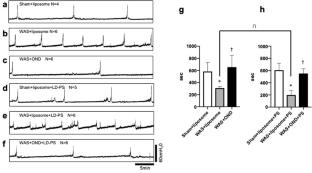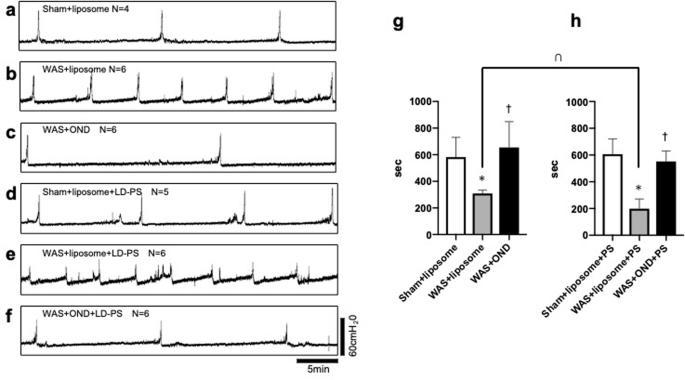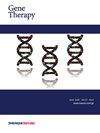Intravesical nerve growth factor antisense therapy for bladder hypersensitivity induced by psychological stress
IF 4.5
3区 医学
Q1 BIOCHEMISTRY & MOLECULAR BIOLOGY
引用次数: 0
Abstract
This study assessed the relationship between NGF expression in the bladder and bladder hypersensitivity caused by psychological stress using water avoidance stress (WAS) in rats by modulating the NGF expression using intravesical liposome-complexed NGF antisense oligonucleotide (OND) therapy on WAS-induced bladder dysfunction. Female Wistar rats were divided into control and WAS groups, the latter of which received WAS sessions for 10 days with or without the OND pretreatment. Rats underwent cystometry with or without intravesical application of low-dose protamine sulfate (LD-PS), or pain behavior measurements after LD-PS application. After functional evaluations, the bladder was harvested for histology and molecular studies. WAS rats with or without LD-PS showed shortened intercontraction intervals and increased pain behaviors compared to control rats, which was improved by OND-treatment. Histological studies revealed that LD-PS provoked urothelial exfoliation in WAS rats. Compared to controls, protein assay showed increased NGF levels, and RT-PCR showed increases of TRPV1 and TRPA1 and a decrease in Cx43 in WAS rat bladders, which were improved by OND-treatment. WAS caused bladder hypersensitivity, which was improved by NGF antisense OND treatment. NGF upregulation in the bladder may be a therapeutic target for the treatment of psychological stress-induced bladder dysfunction.


膀胱内神经生长因子反义疗法治疗心理压力引起的膀胱超敏反应。
本研究通过膀胱内脂质体复合物NGF反义寡核苷酸(OND)治疗WAS诱导的膀胱功能障碍,评估膀胱中NGF的表达与大鼠因避水应激(WAS)引起的心理应激导致的膀胱超敏反应之间的关系。雌性 Wistar 大鼠分为对照组和 WAS 组,对照组接受为期 10 天的 WAS 治疗,无论是否进行了 OND 预处理。大鼠在膀胱内应用或不应用低剂量硫酸原胺(LD-PS)的情况下进行膀胱测量,或在应用 LD-PS 后进行疼痛行为测量。进行功能评估后,采集膀胱进行组织学和分子研究。与对照组大鼠相比,施用或未施用 LD-PS 的 WAS 大鼠的收缩间期缩短,疼痛行为增加,而OND 治疗可改善这种情况。组织学研究显示,LD-PS 会导致 WAS 大鼠的尿道脱落。与对照组相比,蛋白质检测显示 NGF 水平升高,RT-PCR 显示 WAS 大鼠膀胱中 TRPV1 和 TRPA1 水平升高,Cx43 水平降低,OND 治疗可改善这些情况。WAS 会导致膀胱超敏反应,而 NGF 反义OND 治疗可改善这种超敏反应。膀胱中NGF的上调可能是治疗心理压力引起的膀胱功能障碍的一个治疗靶点。
本文章由计算机程序翻译,如有差异,请以英文原文为准。
求助全文
约1分钟内获得全文
求助全文
来源期刊

Gene Therapy
医学-生化与分子生物学
CiteScore
9.70
自引率
2.00%
发文量
67
审稿时长
4-8 weeks
期刊介绍:
Gene Therapy covers both the research and clinical applications of novel therapeutic techniques based on a genetic component. Over the last few decades, significant advances in technologies ranging from identifying novel genetic targets that cause disease through to clinical studies, which show therapeutic benefit, have elevated this multidisciplinary field to the forefront of modern medicine.
 求助内容:
求助内容: 应助结果提醒方式:
应助结果提醒方式:


